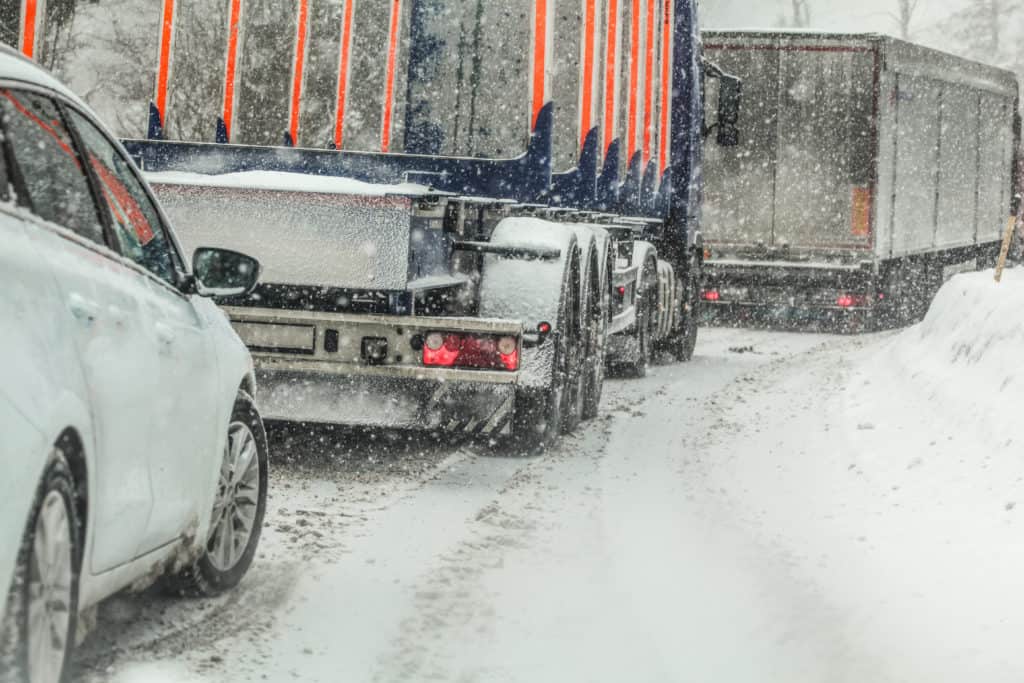Sporting Life

Be Prepared for Winter Surprises
By Dennis Doyle
The recent winter storm debacle with Virginia traffic on I-95 should giver every highway traveler pause. Thousands stranded in sub-freezing weather for 20 hours or more is a situation inviting untold distress and even calamity, not something one often thinks about these days. Even with phone connections and contact with concerned friends, no one could really get assistance to anyone stranded, save an emergency helicopter evacuation. Virtually no one was prepared for what happened, the weather fronts and temperature plunge happened so quickly.
A winter travel bag is something easily prepared and stored in the trunk of your car every autumn and can give great peace of mind anytime you intend on traveling any distance on our highways in possibly inclement weather. Our highway systems are purposely planned through low population density areas and being stranded anywhere in the system means you are going to be quite a distance from any populated areas. One should always have the essentials of survival close at hand.
I prefer a medium sized boat bag (24” x 12” x 12”) to hold the necessary gear. Weatherproof and not too bulky to carry, nor lift, it’s easily stored in the trunk of your car. The items you include are not difficult to assemble, especially if you only do it once a year and not every time there is a weather advisory.
Your primary and most critical danger comes from hypothermia while stranded because you may well run out of gas keeping your heater going. Really warm coats are essential. Everyone has a thick, insulated coat or two they don’t use anymore and if you don’t they’re available quite inexpensively in stores dedicated to bargains rather than fashion.
I suggest two coats because we often travel with a companion and it would be uncomfortable indeed to have just one on hand. And in the event of being alone in really cold weather, one over your legs would be warmer than just the coat you wear.
Roll the coats up tightly and tape them to save space in your bag. A couple of warm, wool stocking caps are needed as well, plus wool or insulated gloves or mittens. Again, fashion is not your aim here. Extra heavy wool socks are also a must—assume you won’t have unlimited access to your car’s heater. Your feet will get coldest first, plan on wearing more than one pair. Buy them extra large so you can pull them over your shoes if you wish.
Next comes the essential comestibles and the first of those is water. An adult can last three weeks without food but physical distress begins within just a day without water and death after three. Cold weather minimizes but doesn’t eliminate our need for hydration, Two quarts should suffice for 24 hours or so. An extra gallon jug in the trunk won’t hurt, especially if your car starts to overheat and you need to add to your coolant.
Breakfast bars, protein bars, nut bars and the like last for long periods, easily over a winter, and will provide adequate nutrition. A three or four day supply of prescription meds and a portable radio with extra batteries can be a comfort as can an adequate supply of chocolate.
In extreme situations, remember you will not be able to count on your automobile’s amenities once you run out of gas. Cars get cold, fast. Emergency, foil-lined blankets are wise and take up little room—and don’t forget a roll of toilet paper. Always have a phone charger on hand.
Highway flares are always a good idea to keep in your trunk. It you happen to have an extreme emergency in a line of a thousand autos and trucks, being able to point yourself out in the crowd can be a distinct advantage.
Being prepared is often the difference between an interesting experience and a disaster. The world is not always safe. Stay warm out there.
